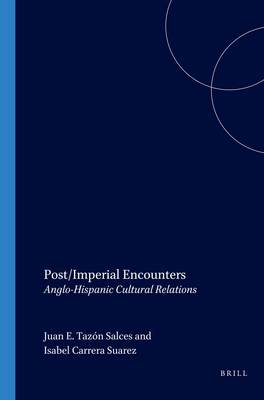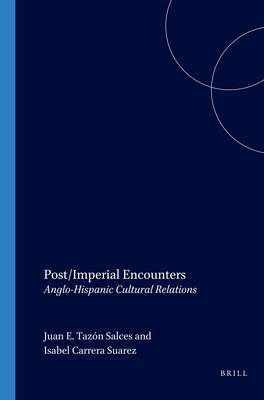
- Afhalen na 1 uur in een winkel met voorraad
- Gratis thuislevering in België vanaf € 30
- Ruim aanbod met 7 miljoen producten
- Afhalen na 1 uur in een winkel met voorraad
- Gratis thuislevering in België vanaf € 30
- Ruim aanbod met 7 miljoen producten
Zoeken
Post/Imperial Encounters
Anglo-Hispanic Cultural Relations
Juan E Tazón Salces, Isabel Carrera Suárez
€ 131,45
+ 262 punten
Omschrijving
Spanish and English are two of the most widely spoken languages in today's world, and are linked by a colonial presence in the Americas that has often provoked turbulent relations between Britain and Spain. Despite abundant exchanges between Spain and the British Isles, and evident contact in the Americas, cross-cultural analyses are infrequent, and ironically language barriers still prevail in a world the media and globalization would appear to render borderless: English and Hispanic Studies have seldom converged, the islands of the Caribbean continue to be separated by language, while the new empire, the United States, has difficulty in admitting to its Hispanic component, let alone recognizing that the name "America" encompasses a wider continent. Post/Imperial Encounters: Anglo-Hispanic Cultural Relations attempts to bridge this gap through articles on literature, history and culture that concentrate primarily on three periods: the colonial interventions of Britain and Spain in the Americas, the Spanish Civil War and the present world, with its global culture and new forms of colonialism.
Specificaties
Betrokkenen
- Auteur(s):
- Uitgeverij:
Inhoud
- Aantal bladzijden:
- 240
- Taal:
- Engels
- Reeks:
- Reeksnummer:
- nr. 45
Eigenschappen
- Productcode (EAN):
- 9789042019928
- Verschijningsdatum:
- 1/01/2005
- Uitvoering:
- Paperback
- Formaat:
- Trade paperback (VS)
- Afmetingen:
- 150 mm x 220 mm
- Gewicht:
- 412 g

Alleen bij Standaard Boekhandel
+ 262 punten op je klantenkaart van Standaard Boekhandel
Beoordelingen
We publiceren alleen reviews die voldoen aan de voorwaarden voor reviews. Bekijk onze voorwaarden voor reviews.








